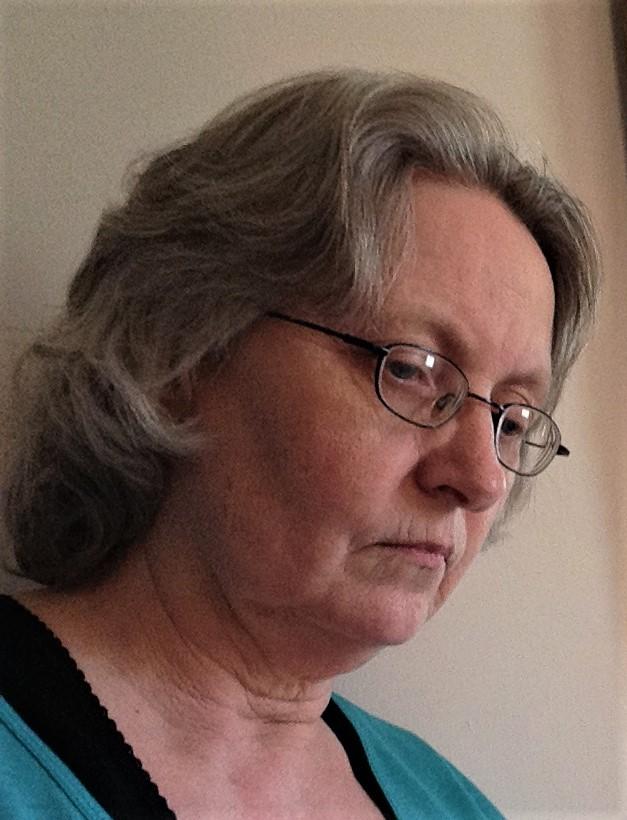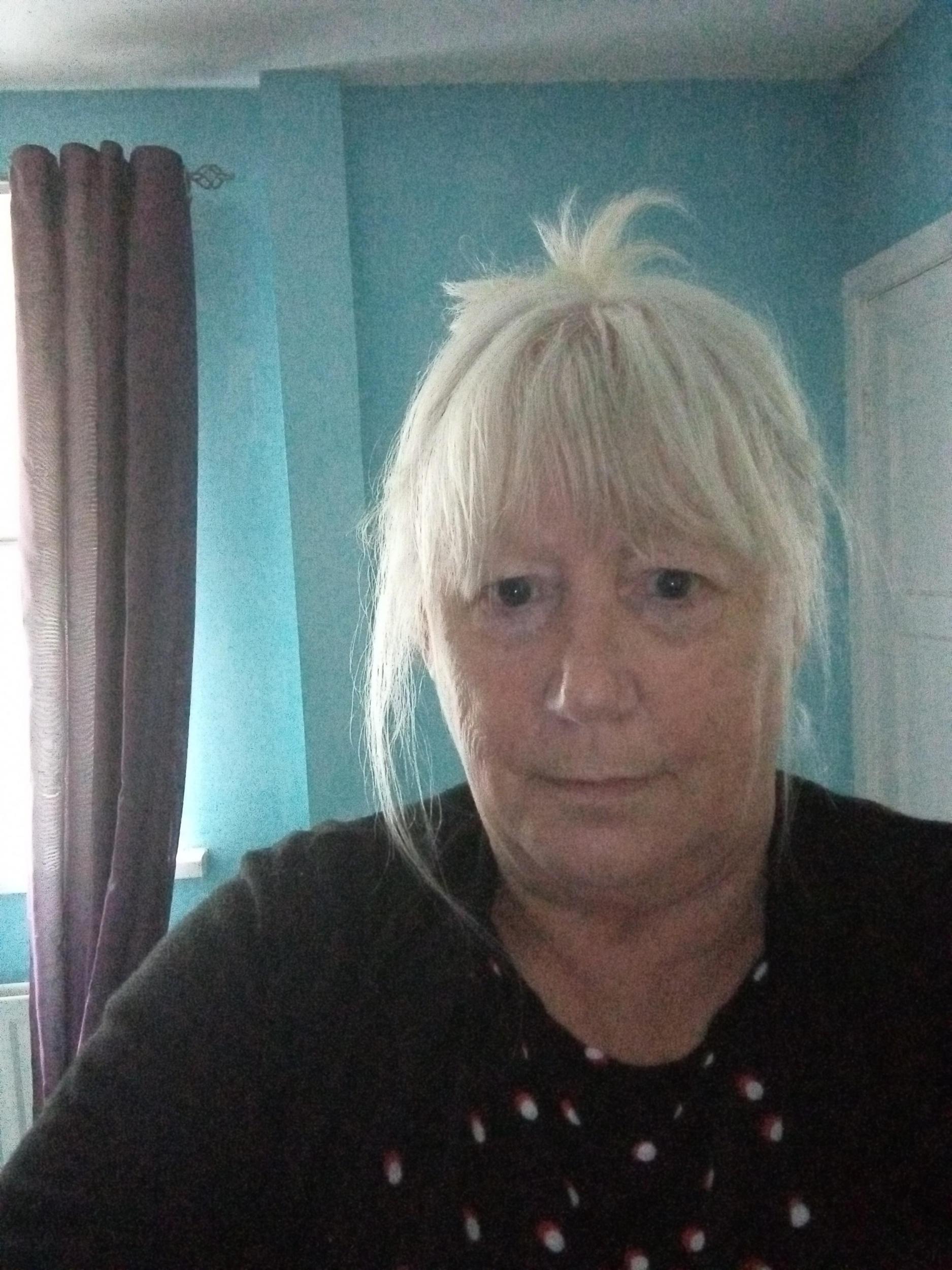‘It was a case of heat or eat’: Seven women explain why they want pension age dropped to 60
‘I cannot go out or use my gas as I cannot afford the cost. I live on bread and jam. I watch TV in the dark as I am frightened of having my electricity turned off, again,’ says Julia Holland, 65

Your support helps us to tell the story
From reproductive rights to climate change to Big Tech, The Independent is on the ground when the story is developing. Whether it's investigating the financials of Elon Musk's pro-Trump PAC or producing our latest documentary, 'The A Word', which shines a light on the American women fighting for reproductive rights, we know how important it is to parse out the facts from the messaging.
At such a critical moment in US history, we need reporters on the ground. Your donation allows us to keep sending journalists to speak to both sides of the story.
The Independent is trusted by Americans across the entire political spectrum. And unlike many other quality news outlets, we choose not to lock Americans out of our reporting and analysis with paywalls. We believe quality journalism should be available to everyone, paid for by those who can afford it.
Your support makes all the difference.Almost four million women were affected by the controversial state pension age rise from 60 to 66 for women born after March 1950 – with the United Nations previously warning they are at increased risk of “poverty, homelessness and financial hardship”.
While BackTo60, a campaign group calling for full restitution for women hit by the state pension increase, lost its landmark High Court battle after taking the government to court over the pension hike, they are appealing the ruling on Tuesday.
The Independent spoke to women up and down the country who have been directly impacted by the state pension overhaul.
Forced to sell jewellery her deceased husband bought her to afford food and electricity
Pamela Satchwell, who lives just outside of Blackpool, said she was pushed into destitution and lost her home due to the state pension age rising.
The 66-year-old, who previously worked as a civil servant and then as a teacher, said the Covid-19 emergency had wreaked havoc with her mental health and worsened pre-existing agoraphobia.

“My husband had an accident. I had to stop working to look after him for years. He died in 2013. He had a massive heart attack. I came down and found him. I still can’t get rid of the picture in my mind. I felt really lost. I panicked. I’d already lost a father six months previously and my mother a few years previously. I’m an only child. I have no relations. I haven’t even got a next of kin. When my husband died suddenly, I was left with the mortgage and a lot of debt I couldn’t manage.
“It was a case of heat or eat. I ended up going to the food bank. In the end, I couldn’t pay the mortgage so the mortgage company made me sell my house. I even had to sell the bits of jewellery my husband bought me to buy food and electric. Sometimes, I’ve thought it would be easier if I wasn’t here. Coronavirus has made life harder. I can’t see an end to this. I’m stuck in a flat. I have arthritis. I suffer from panic attacks and agoraphobia. I feel the four walls are holding me up. I’m extremely stressed. I’m not sleeping. I’m frightened to go to the doctor as I don’t want to get the virus. I’m on antidepressant tablets and high blood pressure tablets. I have absolutely no confidence.”
Forced to sell her home
Sheila Jones, who lives in the Midlands, said she had been caught up in the pension age rise twice but only learnt about the change by going onto the HMRC website.
The 66-year-old, who was an intensive care and clinical research nurse until she retired last June, said she had to go through two knee operations and needed to go part-time, but this was not financially feasible due to having a mortgage to pay and no state pension to rely on.

“I was never told. I never got a letter. I had to sell my house in London and now I’m renting. It had devastating effects. I had my future mapped out. I’m not having the life I had planned for myself. If you add it up, it’s tens of thousands of pounds I lost. As it goes on, it is more and more stress. My situation is much more uncertain than it should have been. I worked very hard. When you think about the injustice, it rises like bile in your system. I feel very bitter we were treated that way. I will not give up. This is an injustice.
“My life was detrimentally changed by the government and therefore out of my control. This has affected me mentally and seeing the effects in other women my age is very upsetting. I’ve got a friend who is a teacher in her early sixties who is having to work until she is 66. She is wondering how she is going to manage. I am very hopeful and positive about the court case. I’m looking to forward to getting our case heard again and hoping for justice.”
Living off live savings due to getting no furlough payments
Julia Jacobs, who lives in Solihull, says she was dependant on her state pension due to spending most of her adult life bringing up four children and project-managing properties she bought with her former husband.
The 60-year-old was working as a part-time exam invigilator on a zero hour contract prior to the Covid-19 emergency but is now living off life savings due to not getting any support or furlough pay from the government.

“I probably won’t get a job as I’m 60. I really needed the security of my state pension at this time in my life. I won’t get my state pension until 2025. The state age rise has made me feel devalued as a human being by society. Why are we women being punished so much when we didn’t have the benefits of equal opportunity throughout life?
“I’m feeling extremely nervous and agitated about the court case. I hope we’ll win. I can’t handle another knockback for all the other 1950s women who are in much more dire straits than myself. Some are contemplating suicide because there is no future. They have lost so much. Some women are walking the breadline. The damage to their financial, emotional and physical health is tragic. These women should be retired. Some are working in factories, cleaning hospitals or people’s homes, some as teachers, some as teaching assistants. We’re talking about jobs that are high risk in a pandemic.”
Not able to care for disabled husband or elderly parents
Frances Neil, who lives in southeast Essex, said she was only notified of the state pension age rise around 18 months before she turned 60.
The 66-year-old, a former primary school headteacher who is a mother-of-four, said it was initially hiked up to 63 but then when she reached that age it was again moved up to 65.

“The state pension age rise is unfair and unjust in every conceivable way. I was the only carer for my elderly and frail parents so couldn’t devote as much time to their care as I hoped and wanted. They did suffer as a result and so did I. My husband became disabled and I couldn’t support him as I intended and wished, either. All this, on top of running a large primary school, was a huge emotional, professional and financial burden. I wanted to retire to care for and spend time with family members and support our children with childcare too, so they could work, but was caught having to remain at work and watch those I loved suffer when I could have done much more for them.
“My health has suffered irreparably as a result of the accumulative stress and led to me retiring before I received my state pension age, even though I knew financially I would lose some state pension. I received no notice so I could plan my financial affairs. The DWP never thought women would fight or be heard. Well, we have and have been heard and will continue to fight for our cause. This is another example of women bearing the brunt of financial ‘belt-tightening’. Many women are not financially secure or independent, particularly those of my generation.”
Not personally impacted but angry on behalf of others
Patricia Hamzahee said the state pension age hike had not personally affected her as she wants to carry on working because she does not have a physically strenuous job.
But the 61-year-old, who works in social impact investing and lives in southwest London, said the rise has been a massive blow for other women of a similar age to her.

“If they had plans to retire at a certain age that is what they planned for and that is what they saved for. That is what they organised their lives around. If all of a sudden I had been told I had to work longer but wasn’t planning to, I would be aggrieved. You are told all of the time by authoritative voices – whether that is the government or financial advisors – to plan for your retirement. That was drilled into me when I was young. So when the rug is pulled out from under you, through no fault of your own, that undermines your efforts to plan. I hope they win the court case because I think it is unfair.”
Disrupted sleep patterns and panic attacks
Joan Hughes, who is not retired due to her state pension age rising to 63 initially and then again to 66, has been unable to find suitable work since reaching the age of 60 in spite of being well qualified and experienced in both childcare and office administration.
The 63-year-old, who lives in Milton Keynes and is currently unemployed, said she had previously found part-time work at a nursery on a minimum wage, zero hour contract, but injured her hip and knee after being expected to carry out the same heavy physical duties as staff a third of her age.

“Without a proper income, I have had to live very frugally indeed. I had to give up my car. I have a heart condition and arthritis. Not only has my physical health been affected, I am also under treatment for depression. Constant high levels of anxiety have resulted in disrupted sleep patterns, panic attacks and loss of confidence, a situation made worse by the Covid-19 lockdown, which has meant my life has become even more limited and isolated.
“It is the final insult to now expect me either to work in low-paid, menial, insecure employment for another six years or else continue claiming unemployment benefit. I have brought up my daughter on my own. I have looked after sick parents on my own. There is a stigma attached to being unemployed. It is deeply demoralising. I think it is cruel to saddle me with this hopeless, humiliating future for six years.
“The impending court case has made me feel anxious. I think the case for full restitution of pension rights is fair and reasonable, however, there are large sums of money at stake and I’m afraid this will influence what is considered fair and reasonable. I think the judgement will be as much about how women are valued in society as anything else and my experiences of this have so far not been good.”
Forced to choose between heating and eating
Julia Holland, an unemployed visual merchandiser who lives in Newcastle upon Tyne, said she was suffering severe hardship due to the state pension age rising.
The 65-year-old said she has to choose between eating or heating and cannot afford the bus fare to travel around.

“I left school at 16, went straight into a job, married at 22, had my son at 28. Because my son was not very well at birth and then had to have several operations, I had to leave my job. So I stayed at home nursing my son for nearly five years. My husband continued to work and contribute to his pension. From then on I was in and out of work, some times full-time, sometimes part-time, so never did get the opportunity to fill up my pension pot.
“Then my son died in his sleep. Since then my life has been so hard financially, as well as mentally. Trying to handle things on my own, trying to support myself. So at 65, I still have some months to go before I can retire, but I have had enough. If I could have retired when I thought I could, life would have been a little easier, to say the least. I had no time to prepare for the robbery that took place. I am now going from one temp job to the next on a minimum wage. At the moment I am on universal credit. I cannot go out or use my gas as I cannot afford the cost. I live on bread and jam. I watch TV in the dark as I am frightened of having my electricity turned off, again. The rise in the state pension was unfair as I did not have adequate time to prepare for this. I am excited that this case will see justice is done and I am positive we will win.”
Join our commenting forum
Join thought-provoking conversations, follow other Independent readers and see their replies
Comments